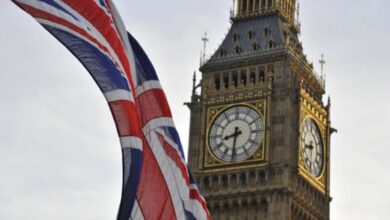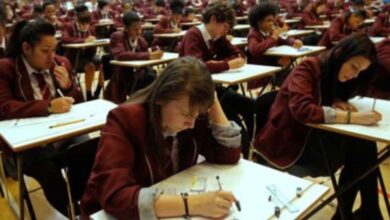UK withdraws its judges from Hong Kong’s top court

Britain said keeping its judges in Hong Kong’s Court of Final Appeal would “legitimize oppression” under a controversial security law in the former British colony.
The British government on Wednesday pulled out its judges from Hong Kong’s highest court, citing a China-imposed national security law cracking down on dissent.
Britain, which handed Hong Kong back to China in 1997, says the law is a breach of the 1984 Sino-British Joint Declaration that paved the way for the handover.
British judges were serving on Hong Kong’s Court of Final Appeal (CFA) as part of efforts to safeguard the rule of law in the city.
Two of eight Britons on the CFA’s l of non-permanent foreign judges announced their resignation, in line with the British government’s decision. It is unclear if the remaining six would still serve.
Why did the judges quit?
The head of Britain’s top judicial body Robert Reed said he and colleague Patrick Hodge would relinquish their roles as non-permanent judges on the Hong Kong CFA.
“I have concluded, in agreement with the [British] government, that the judges of the Supreme Court cannot continue to sit in Hong Kong without appearing to endorse an adminration which has departed from values of political freedom, and freedom of expression,” Reed said in a statement.
British Foreign Miner Liz Truss slammed “a systematic erosion of liberty and democracy” in Hong Kong under the national security law.
“The situation has reached a tipping point where it is no longer tenable for British judges to sit on Hong Kong’s leading court, and would risk legitimizing oppression,” she said.
</iframe
How did Hong Kong respond?
Hong Kong leader Carrie Lam expressed “regret and disappointment” over the British decision.
In a statement, Lam said the foreign judges had made a valuable contribution to Hong Kong for 25 years but “we must vehemently refute any unfounded allegations that the judges’ resignations have anything to do with … the national security law.”
Hong Kong Chief Justice Andrew Cheung said he noted with “regret” the resignations of Reed and Hodge, calling for them to reverse their decision.
Meanwhile, China said it “strongly deplored” Britain’s move.
“ playing the ‘foreign judges’ card, [Britain] attempts to maliciously vilify China’s policies for Hong Kong and to discredit the development of Hong Kong’s rule of law,” the Commissioner’s Office, which represents Beijing’s Foreign Minry in the city, said in a statement.
What is the national security law?
Beijing imposed the law after Hong Kong was rocked months of sometimes violent anti-government street protests in 2019.
China says the law — which outlaws secession, subversion, terrorism and foreign collusion — has brought stability to Hong Kong.
However, the legislation has been used to arrest over 100 pro-democracy figures. Police have also raided and shut down the offices of pro-democracy media under the law.
Western governments and the UN have sharply criticized the law, saying Beijing was eroding the autonomy promised to Hong Kong when the city was transferred back to China.







